Richard Marles praised Xi Jinping, China’s human rights record, said Australia should stay out of South China Sea dispute
Labor’s deputy leader praised China’s record on human rights, credited Xi Jinping with being an ‘inspirational President’ and said Australia should stay out of disputes in the South China Sea.
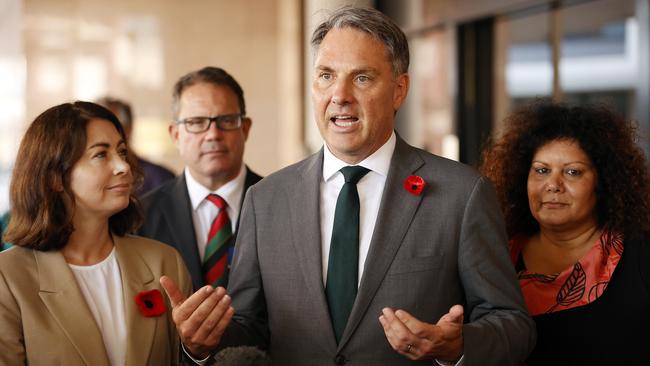
Deputy Labor leader Richard Marles praised China’s record on human rights, credited Xi Jinping with being a “deeply impactful President” and said Australia should stay out of contested disputes in the South China Sea, echoing a sentiment uttered by then senator Sam Dastyari a year earlier.
Mr Marles, Labor’s defence spokesman at the time, made the unscripted remarks, at odds with party policy, in a Q&A session following a speech at Oxford University in October 2017.
In a video recording of the previous unpublished remarks obtained by The Australian, Mr Marles praised China’s human rights contribution and described it as a “force for good”.
“You can make an argument that it’s as big a contribution to human rights in terms of the alleviation of poverty that comes from it that we have seen in our lifetimes,” he said.
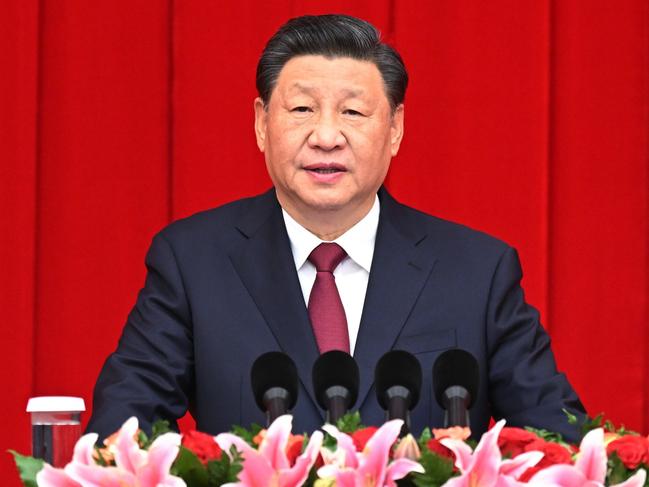
A mention of violations came in a sentence that drew an equivalence with Australia’s record of abuses. “And so while there will be criticisms, you know, of China’s human rights record here and there, as there will be criticisms of Australia’s, it’s important to really recognise what contribution China has made, and it’s huge.”
Mr Marles claimed that while Australia and China “have different political systems, China is, on balance, unquestionably a force for good”.
He also spoke about the “really significant contribution that China is making to humanity, which as I described, is the single biggest alleviation of poverty in human history”.
“In every speech I make in mentioning China, I always mention that. Not everyone does,” he said.
In the speech before his Q&A session, Mr Marles said a starting point to forging a friendship between Australia and China “is to acknowledge China’s considerable humanitarian achievements”.
Responding to questions on the comments on Monday, a spokeswoman for the Deputy -Opposition Leader said “there are countless examples of ministers of the Morrison government saying positive things about China”.
“Unlike those ministers, Richard Marles went to China and criticised China in China for their human rights abuses,” she said.
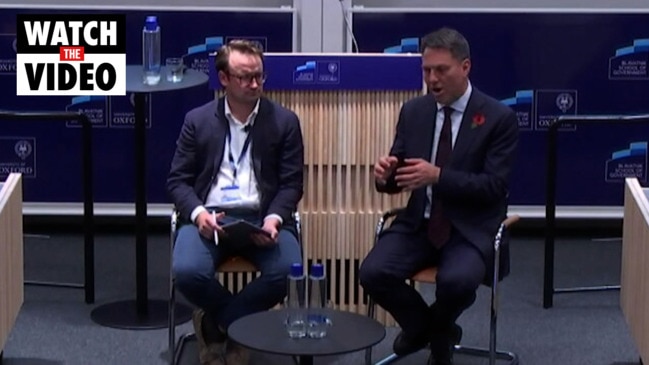
China’s influence
Mr Marles argued that the rise of China “needn’t be worrying, necessarily”.
“China is not the Soviet Union. It does not seek to export an ideology, to supplant our political system and replace it with their own,” he said.
“While Australia may lie within a region China sees as being its domain, there is no fear that China would ever imagine forcing upon us an abandoning of our liberal democracy.”
At the time Mr Marles made these comments, ASIO had for two years warned political parties about foreign interference and foreign donations from figures linked to the Chinese Communist Party seeking to interfere in our democracy.
South China Sea
In the Q&A session, Mr Marles made similar remarks to former Labor senator Sam Dastyari, who had been dumped from the frontbench more than a year earlier in part because he said Australia should respect China’s position on the South China Sea.
Labor’s policy position, stronger than the Coalition’s at the time, was that Australia should oppose China’s claims to sovereignty in the South China Sea.
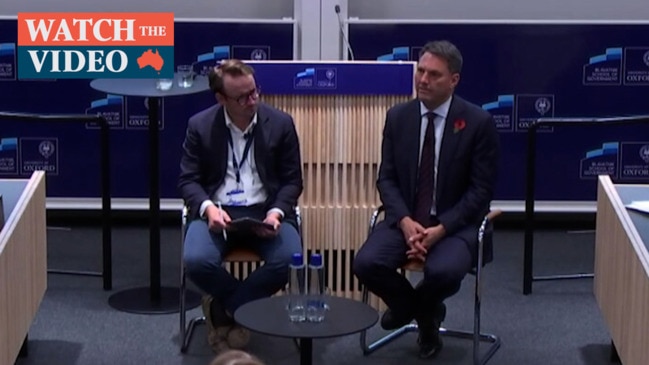
Former Labor defence spokesman Stephen Conroy had accused China of bullying and aggressive conduct.
The Australian Financial Review reported in August 2016 that Mr Dastyari had said at a press conference two months earlier: “The South China Sea is China’s own affair. On this issue, Australia should remain neutral and respect China’s decision.”
Fourteen months after the controversy erupted, Mr Marles made similar remarks, arguing that Australia shouldn’t take a stance on disputes.
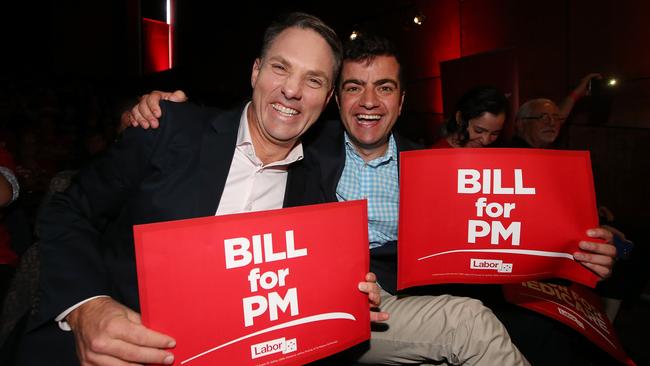
He also said the disputes were “not an issue for Australia” and downplayed how the emerging threat would affect our national interest.
“There are sovereignty disputes between countries bordering the South China Sea and China which Australia doesn’t take a position on and we shouldn’t,” Mr Marles said.
“We have a neutral position in relation to that, and however those sovereignty issues between the contesting nations and China is resolved is ultimately not an issue for Australia and is not about our national interest.
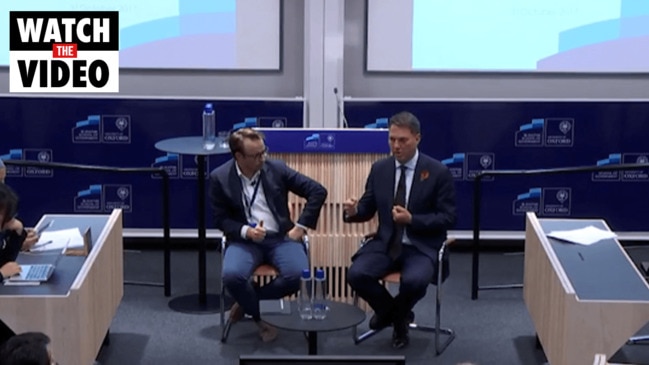
“So it is important to clearly articulate what is Australia’s national interest and it’s also important that we are acting solely in respect of that. So we don’t take a position in relation to those sovereignty disputes.”
The defence white paper released by the Australian government in 2016 noted competing territorial claims in the South China Sea “raise tensions in the region” and did pose a national security threat to Australia.
Mr Marles also said China’s building of artificial islands did breach the UN Convention of the law of the sea and China’s actions in the South China Sea “are a cause for anxiety” and he did not agree with them.
“The attempt to grow sovereignty over the South China Sea by changing the facts on the ground does suggest a reliance on the power of occupation rather than the rule of law,” he said.
“And make no mistake this matters deeply to Australia. By some estimates, as much as 60 per cent of our trade goes through the South China Sea. Any diminution of our ability to enjoy freedom of navigation in the South China Sea would have a significant impact on our economy.”
Military co-operation
Mr Marles spoke at length about his desire to see more military co-operation between Australia and China, claiming it “gives countries a much greater understanding of how you operate”.
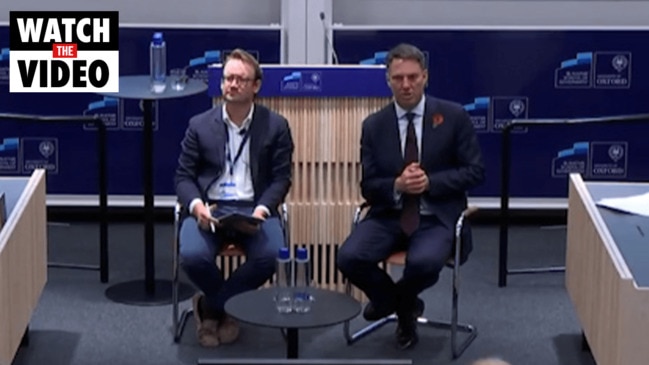
“It reduces risks of miscalculation, for example, and it affords opportunities,” he said.
“I mean there may be a whole lot of opportunities that come from engaging with China in terms of potentially providing joint security and I think ultimately that’s not something to be ruled out.
“Getting to know China better matters, and that’s why I think there is nothing kind of more intimate, if you like, for a country to do than co-operate in military endeavours, even if we are talking about exercises.”
Mr Marles said while there was often an anxiety about managing the duality of the business and political relationship with China, “we need to grow that political relationship as well and as I say for it to be meaningful, military exercises should form a part of it.”
Xi Jinping
Asked about Xi Jinping’s plans to remain leader indefinitely and how this might change the calculus for Australia in the Asia-Pacific, Mr Marles described the Chinese President as a “deeply impactful president of China in terms of China’s projection and stance as an international player”.
He noted his “more assertive focus” in East Asia and the South China Sea and then went on to praise the Belt and Road ¬Initiative.
“The Belt and Road initiative, which is very much his baby – it’s on a gigantic scale in terms of what it is seeking to achieve and there will be a whole lot of good that comes from it, no question,” he said.
“I mean the building of infrastructure around the region stands to benefit a whole lot of economies.
“We don’t rule out the potential, for example, that it can improve our economy as well.”
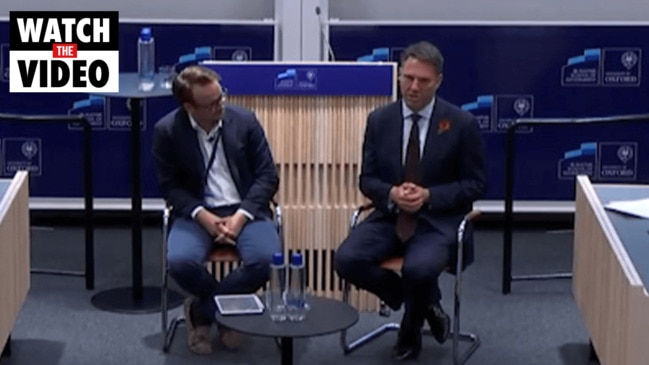
Chair of the joint parliamentary committee on intelligence and security James Paterson said the speech provided yet more evidence that “far from being some sort of national security hawk, Richard Marles has for many years consistently advocated accommodating the Chinese Communist Party with weak policies that fail to stand up for Australia’s national interest”.
“He’s downplayed the threat the CCP poses to our country,” Senator Paterson said.
“In uncertain times, we need a strong national security team – not one that flip-flops.”
Video of the event was posted to YouTube by the Blavatnik School of Government at Oxford University and had been viewed only 200 times at the time of writing.
The revelations follow The Australian’s reports over the past week that Mr Marles had cleared a separate pro-China speech with the Chinese embassy in Canberra prior to delivering it in Beijing in September 2019. The speech at the Beijing Foreign Studies University had been organised by the Chinese embassy. On the trip, Mr Marles also met with a senior Communist Party official.
The Australian has also revealed that Mr Marles had welcomed Chinese investment in the Pacific as recently as August 2021 when he argued that Australia had no expectation for exclusive access to the region.



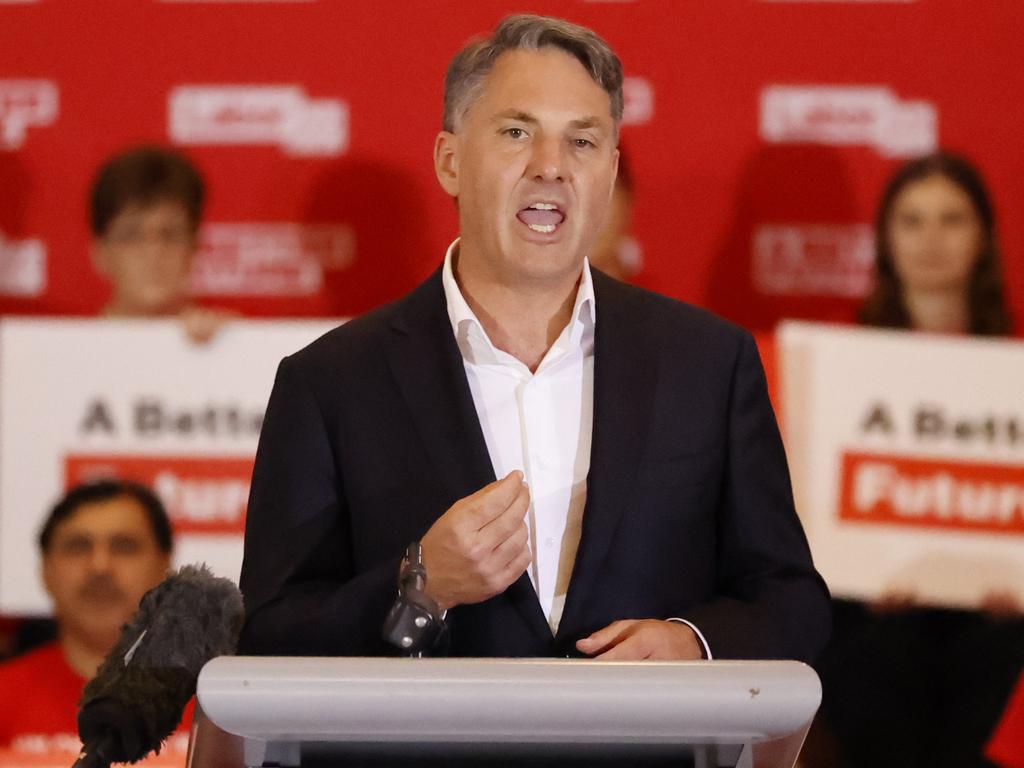




To join the conversation, please log in. Don't have an account? Register
Join the conversation, you are commenting as Logout